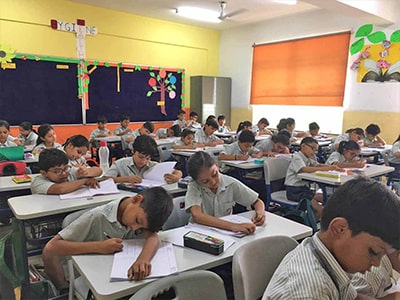Inquiry-Based Learning is an excellent strategy that can keep the students and candidates potentially engaged in the learning process.
Having an inquiry-based classroom enables the students to learn about different real-world problems and ask a plethora of questions. For more information, check out this article from tip to toe!
What is Inquiry-Based Learning?
Inquiry-based Learning, also abbreviated as IBL, is basically a teaching method that solely emphasizes the following things:
● It helps the students to get engrossed and engaged.
● It allows the candidates to learn authentically by collaborating with their peers.
● It helps them to feel in control of the available information.
● The children get the opportunity of growing into more focused individuals; they develop a strong connection with the specific subject.
● It allows the candidates to feel motivated.
● Inquiry-based Learning incorporates research skills in them.
● The students learn to ask different types of questions to their teachers.
● The candidate gets the opportunity of taking ownership of their education.
Firing statistics and facts while conducting a class is not enough; allowing the kids to get involved in inquiry-based Learning can do absolute wonders in no time.
What are the Examples of Inquiry-Based Learning?
Given below are some of the inquiry-based learning examples; take a look at the pointers right away:
1. Inquiry Planning
Student planning or inquiry planning is the first step of the inquiring-learning process. The fellow candidates need to develop an understanding that the core aim of inquiry learning is to develop acquisition learning skills with optimism and curiosity.
By working with a familiar teacher, the student will be able to identify their areas of interest, followed by the available resources.
2. Project Processing
The teachers who are involved in the inquiry-based learning process should consider limiting the project scope. They can seamlessly do it by looking after deliverable formats, topic selection, and controlling time.
Narrowing the topic of the project will create room for authentic questions, a thesis statement, or a personal perspective for high school students.
3. The Process of Information Retrieving
In this procedure, the candidates must consider the insights that are available to them along with the necessary info that they need to search. This is an entertaining activity since it allows high school students to gather new details about a specific topic.
However, the internet will offer them an overwhelming amount of data; pinpointing detailed insights might make them feel frustrated.
This is where the teachers can help their students retrieve and organize information. The screening strategies and search skills allow them to look for relevant information. The best Ahmedabad CBSE school can provide adequate training to their dear candidates.
What is the Core Structure of Inquiry-Based Learning?
Now, it’s time to take a quick look at the core structure of inquiry-based Learning:
● The teacher needs to get engaged in inquiry-based professional Learning at first. They need to understand what it exactly means to think deliberately, read critically, and respond in an informed manner.
● By creating a community of inquiry requires teachers to encourage students to share their thoughts and opinions. However, the teacher must consider formulating rules, expectations, and norms so that the students can understand their limits.
● Both the students and the teachers should continue practicing inquiry-based Learning without any pause or break. It will ultimately establish a culture of inquiry in no time.
What are the Benefits of Inquiry-Based Learning?
Have you ever questioned why inquiry-based Learning is such a popular teaching method in this present scenario? Well, the unparalleled benefits can’t be overlooked under any given circumstances. Take a quick look at some of the points stated below:
1. It Creates Room for Critical Thinking
When a student in Ahmedabad CBSE school is presented with a piece of particular information, inquiry-based Learning allows them to think critically about it. They evolve as absolute champions by formulating several questions and evaluating their solutions.
2. It Deepens Their Level of Understanding
Inquiry-based Learning allows the candidates to build strong connections; their top-notch curiosity paves the way for grabbing new content.
3. It Boosts Their Problem-Solving Skills
Developing problem-solving skills is a significant benefit offered by inquiry-based Learning. By exploring real-world challenges, they get the scope of thinking out of the box. This potential skill set will certainly help the student in various aspects of their life. The best school in Gujarat emphasizes building this skill.
4. It Improves Their Effective Communication Skills
Pitching ideas, coming up with a solution, or asking different questions allows the students to nourish and nurture their communication skills. The process of inquiring and Learning can’t be fulfilled if one side maintains silence.
5. It Boosts Creativity
Inquiry-based Learning highly encourages creativity. Exploring various problems and coming up with a reasonable solution enables the students to hone their creative skills.
6. The Students can Understand Complicated Topics
This fantastic learning process enables the candidates to understand complicated and complex topics. Since they get the chance to explore crucial matters, it automatically allows them to identify the twisted issues.
Tips for Teachers Implementing Inquiry-Based Learning
Thoroughly read the tips that are written below in this write-up:
1. The teacher must avoid spoon-feeding their students; firing back questions can be more helpful.
2. The teachers need to accept the reality that all inquiry-based classes will not be the same.
3. It is crucial to invest more time in the projects and less time in delivering lectures.
4. The learning process never ends; hence the teacher must keep learning alongside.
5. Before teaching the students, the teacher needs to prepare well.
6. The teachers must consider age-appropriate activities.
7. It is essential to develop top-notch questions.
8. They must use measurement and implement observation into the lessons.
9. The teachers should consider using model-building exercises in the learning process.
10. Incorporating hands-on activities and design techniques into the inquiry-based learning process are crucial.
Don’t Miss Out –Which Is Best Science, Commerce, Arts ?
Conclusion
Inquiry-based Learning is also a type of problem-based learning. Conducting these sessions can pave the way for immediate success.





































